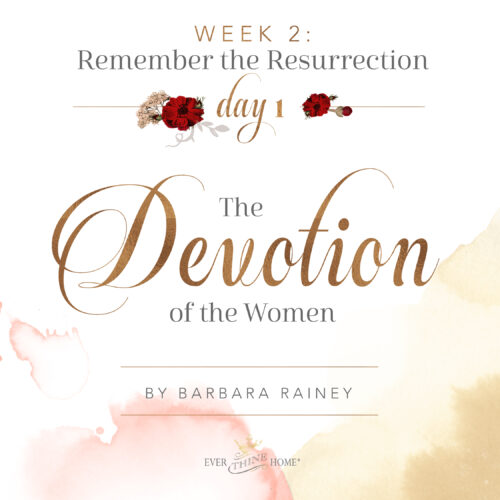
It was a comment that stuck to my ribs in a good way, like brown-sugared oatmeal on a cold morning. A friend wrote on my Facebook page:
[My husband] and I have wrestled with our “calling” to adopt years ago. We clearly felt it, and we have second guessed it almost every day since then, wondering what were we thinking? Did God really call us to this or were we just emotionally carried away, or as [this post] put it, is it an act of worship? I think in my naïveté, I assume that if I obey what I think God is clearly placing on my heart, he will “reward” me somehow with happiness and not trouble. My very wise husband points out that this is very bad theology!
Have you ever thought you’d heard the Holy Spirit—then wondered if you asked for the right thing in the first place? Have you ever felt punished…by prayer?
A quote from a nun I read in high school stunned me (a quote perhaps someone smarter than I can remember or more effectively Google). The gist: Lord, please don’t punish me by giving me what I ask for.
At the time, I thought it was genius; it encompassed the trepidation I felt at the time, so fervently longing to hear the Holy Spirit (Barbara has some great suggestions on identifying His voice). But it took me awhile to peel back what that quote said about God. Do I really believe God’s ready to lay the smack down if I don’t see the 360⁰, if I’m honestly asking for Him to do what He sees fit?
And if I really believe He’s my Good Shepherd, don’t I believe He knows how to lead me, how to get my attention? Ours is not a relationship where God’s standing mysteriously in the corner, expecting me to read the tea leaves.
C.S. Lewis puts it more comically: “There are only two kinds of people: those who say to God, ‘Thy will be done,’ and those to whom God says, ‘All right, then, have it your way.’”
Years ago, I devoured a disturbing, yet eye-opening science-fiction novel by Catholic author Mary Doria Russell, The Sparrow. (No, I’m not usually a sci-fi girl—and for content reasons I can’t necessarily recommend it, though it’s stuck with me spiritually.) In the story, a complex team of skilled individuals—also friends–is assembled to examine a civilization discovered on another planet. One of these is a Jesuit priest with remarkable linguistic abilities and an uncanny set of circumstances. All seem to indicate that God has directed his life for this very team; this very situation.
(Spoiler alert at this point.) Yet despite what appears to be careful crafting by God, the team is wiped out in a number of acute horrors. The priest alone escapes, but not without dire suffering, and some unintentionally inflicted with his own hands. Bearing the scars of this journey, much of the story examines his agony and confusion, without resolve.
It caused me to wrestle with the poignant question, What if our circumstances are intricately orchestrated by God toward our own demise?
I turned over and over what I thought about such a disturbing, gut-wrenching concept—and surely the inquiry that’s plagued the minds of so many Christian parents who’ve lost a child, or, like me, a Christian who’s been involved in someone’s death.
I came to a few conclusions:
- This author’s fine-tuned story lacks the concept that much of the Bible hangs its hat on: That all things work together for good for the people who love God, even when our lives end without seeing its fulfillment. In a word, it lacked hope; signs of a deeply good Divine Author. Do we not believe God is both great and good?
- As Beth Moore phrases it: Deep inside, do I believe God is a giver or a taker?
As I look throughout the Bible, I do witness a number of circumstances that appear to be carefully coordinated for despair: The beleaguered, terrified disciples in a sleepless, storm-thrashed night, bailing water for hours from a boat. Hezekiah, watching the Assyrians that sacked Israel and the vast majority of the known world, closing in around his people. The sun descending on a dead man sagging from a Cross, whom everybody hopes would change everything forever.
The reality? Rather than despair, these situations were masterfully strategized and written for astounding triumph. For glory. One would gather that circumstances were only dismal in order to glorify God to the max when He did show up: To say, Behold: Our God.
What about when I can’t hear the Holy Spirit?
I appreciated a sermon by Francis Chan where he acknowledged that he was only about 70% confident of what God wanted him to do in a major decision he’d described, and about 90% in marrying his wife. Instead, he talks about what he dubs “prinking”—praying and thinking about what the mind of God would be on this.
This well-stated post actually quoted an intriguing encounter with Mother Theresa, who when someone asked her to pray for clarity for himself, stated, “I have never had clarity; what I have always had is trust. So I will pray that you trust God.”
I’m presently in my own situation where I’m befuddled not only that it appears I asked the Holy Spirit for the wrong thing, but He actually gave it to me. (I’ve written about a form of this before, when I wrote about second-guessing decisions of mine—and wondered if God was in them.)
My heart aches with the implications of all these ardently, open-handedly, carefully requested-and-answered prayers. These answered prayers point away from something that, amidst the right surge of emotion, I feel I wanted more than any of them. Where did I go wrong?
And yet—I do not believe that God punishes us for not seeing the future, or for approaching Him in honest, humble prayer: Your will be done, on earth as it is in heaven. As author and pastor Tim Keller ruminates (as he elaborates upon in this well-reasoned presentation to the staff of Google), “Just because we don’t see a reason for evil and suffering doesn’t mean there’s not a reason for it.”
God is not a crafty fiction writer, endeavoring to gather us in suspense with the proper plot twists. He is not a vindictive Greek deity, crossing His arms with an eyebrow raised: You’d better pick the right one.
He’s the Shepherd who knows His sheep, knows how to get their attention. He directs a man’s heart like a watercourse—and not as an impassive God bent only on His fame. His glory can’t be teased apart from His profound, tenacious love for us and our welfare.
Like the rest of history, He only leverages prayer for our good.
- Discuss a time that you wondered—or still wonder!—about God’s voice and your ability to follow it. What causes you to question your decision? How has this affected your relationship with God?
- Talk about a time that you thought you were walking by the Holy Spirit, but as you look back, you see your own ambitions or desires had a strong hand.
- How have you learned to identify the voice of the Holy Spirit in your own life? How does this compare with what the Bible says about the Holy Spirit?
- Francis Chan has written, “It is easy to use the phrase ‘God’s will for my life’ as an excuse for inaction or even disobedience. … My hope is that instead of searching for ‘God’s will for my life’ each of us would learn to seek hard after ‘the Spirit’s leading in my life today.’ May we learn to pray for an open and willing heart, to surrender to the Spirit’s leading with that friend, child, spouse, circumstance, or decision in our lives right now.” We often seek God’s will in the big picture—but it’s harder in the day-to-day submission in all the “small steps” that lead to our “big steps”! Talk about one area in your life today—a “small step”—where God is asking you to surrender.




Thank you Jill. Encouraging devotion. I’m glad to know we all sometimes have trouble knowing what how the Holy Spirit is directing us. I appreciate Mother Teresa’s quote.
So glad you’re encouraged, Jana–and yes, I still struggle to discern that still, small voice. Thanks for the warm words.